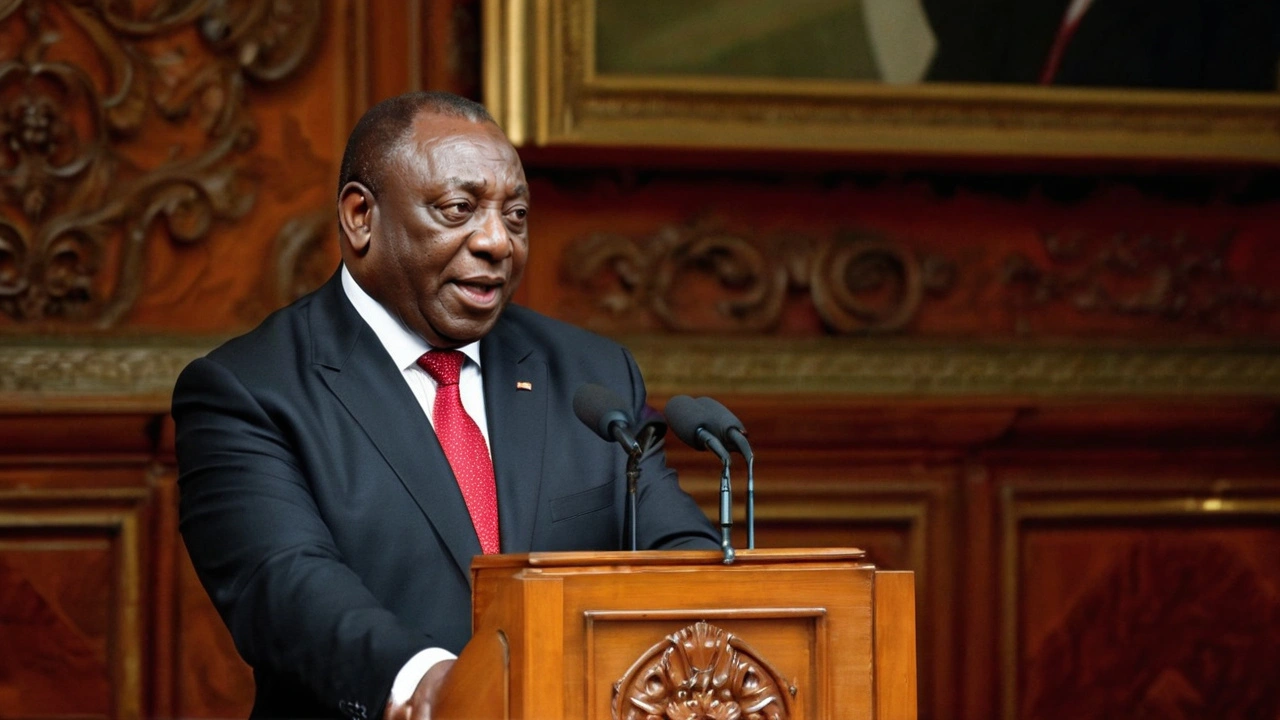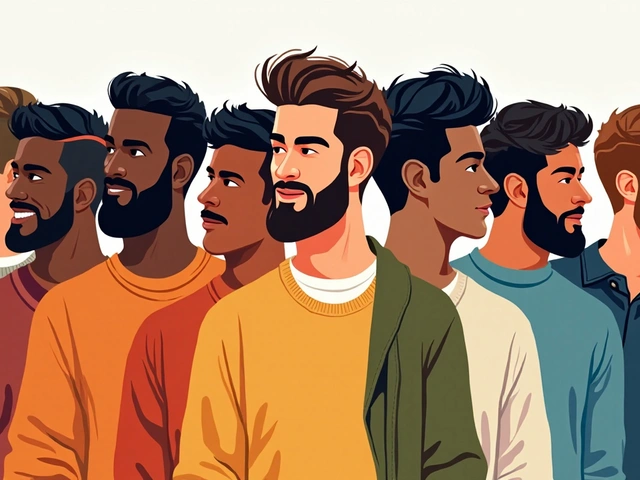
Women's Organisation Plans Legal Action Against Ramaphosa Over GBV Bill
The Initiative for Strategic Litigation in Africa (ISLA) has announced its intent to take legal action against President Cyril Ramaphosa concerning the gender-based violence (GBV) bill. This move has drawn significant attention and has sparked conversations about the accountability of political leadership in addressing gender-based violence in South Africa. The ISLA's planned legal action serves as a critical reminder of the country's ongoing struggles with GBV and the need for effective governmental intervention.
Sibongile Ndashe, speaking on behalf of ISLA, made it clear that while the community appreciates the presence of legal frameworks to combat GBV, the actual implementation leaves much to be desired. According to Ndashe, there is a pronounced enthusiasm within communities for these laws, but a lack of political will and institutional fragmentation impedes meaningful progress. These sentiments are echoed by numerous activists and organizations who feel that the government's efforts to address GBV fall short of expectations.
ISLA and Called to Action
The Initiative for Strategic Litigation in Africa is part of an umbrella group known as Called to Action, which comprises over 90 civil society organizations, trade unions, and individual activists. This collective aims to monitor the implementation of the national strategic plan on gender-based violence, ensuring that the government's actions align with community demands and legal obligations. Called to Action is focused on 24 specific demands that they believe are essential for effectively combating gender-based violence in South Africa.
The group's demands pertain to various aspects, such as improving victim support systems, ensuring swift and thorough investigations, and establishing accountability mechanisms for law enforcement agencies. These demands have been carefully compiled, taking into account the experiences and insights from various stakeholders who have been directly affected by GBV or have worked closely with victims. The collective's goal is to drive sustained governmental action that reflects a genuine commitment to eradicating gender-based violence.
Political Challenges
One of the primary challenges highlighted by Ndashe is the apparent political fragmentation that hampers cohesive action. This fragmentation is not just limited to differences in opinions among politicians or political parties; it extends to systemic inefficiencies and a lack of coordinated efforts across different governmental departments. These issues create significant barriers to implementing policies and laws designed to protect citizens from violence.
Ndashe emphasized that the government's failure to effectively implement GBV laws is not merely a bureaucratic oversight but a breach of its constitutional obligation to protect every citizen from violence. In the context of South Africa's history and ongoing socio-economic challenges, this failure has particularly dire consequences for women and marginalized communities who are disproportionately affected by GBV.
Constitutional Obligations
South Africa's constitution mandates that the government takes proactive measures to protect its citizens from harm. This includes enacting laws and policies that address the root causes of violence and provide adequate support for victims. However, the gap between legal provisions and their practical application often leaves victims without recourse or adequate support.
ISLA's planned legal action against President Ramaphosa aims to bridge this gap by holding the government accountable for its promises. The organization's efforts are reflective of a broader societal push for accountability and tangible action. This push is essential, especially in a country where gender-based violence remains pervasive and deeply entrenched in societal norms and behaviors.
Impetus for Change
The move by ISLA and the Called to Action group underscores the urgent need for a paradigm shift in how the government addresses GBV. Activists and legal experts alike argue that without such a shift, any legislative or policy measures will remain largely symbolic, offering little real protection or solace to victims. By initiating legal proceedings, ISLA hopes to catalyze this necessary change, not just at the legislative level but across all societal institutions.
The group's planned legal action is not just about challenging the status quo; it's about redefining it. This redefinition involves creating an environment where victims feel safe to report violence where their cases are handled with the seriousness they deserve, and where perpetrators are held accountable. Achieving this goal requires a multipronged approach, involving legal reforms, increased funding for victim support services, and widespread societal education to change attitudes towards gender-based violence.
Conclusion
In conclusion, ISLA's move to take legal action against President Ramaphosa over the GBV bill is a significant step towards holding the government accountable for its constitutional obligations. The organization's efforts, supported by a collective of over 90 civil society organizations, trade unions, and individual activists, highlight the urgent need for effective implementation of policies and laws designed to eradicate gender-based violence in South Africa. While there are numerous challenges to be addressed, including political fragmentation and systemic inefficiencies, the group's persistent advocacy serves as a powerful reminder of the ongoing fight for justice and equality. By shining a spotlight on these issues, ISLA and Called to Action hope to drive meaningful change and create a safer, more equitable society for all South Africans.
19 Comments
Write a comment
More Articles

OKC Tops Power Rankings, Knicks Second as Lakers Injuries Loom
CBS Sports' NBA power rankings put OKC first, Knicks second, and flag early Lakers injuries, while Phoenix, Sacramento, and Charlotte face unique challenges in a shifting 2025‑26 season.

Karol G Halftime Show: How to Watch YouTube’s First Exclusive NFL Broadcast from São Paulo
Karol G will headline the halftime show during YouTube’s first-ever exclusive NFL live broadcast on September 5, 2025, as the Chiefs face the Chargers in São Paulo. The game streams free worldwide on YouTube, with pregame at 4 p.m. PT/7 p.m. ET/8 p.m. BRT and kickoff at 5 p.m. PT/8 p.m. ET/9 p.m. BRT. Here’s how to watch and why this crossover matters for sports and music.

Celebrating International Men's Day 2024: Embracing Positive Masculinity and Male Wellbeing
International Men's Day on November 19th, 2024, celebrates the positive impact men have on society, emphasizing the importance of male role models and wellbeing. The day's objectives focus on promoting positive expressions of masculinity and improving gender relations. It also highlights support services for men struggling with mental health, such as Andy's Man Club and initiatives like Ascot Shed to combat isolation.
priya sharma
July 24, 2024 AT 03:15The recent announcement by ISLA represents a salient jurisprudential endeavor within the South African constitutional framework. By invoking the principle of state accountability, the organization foregrounds the dichotomy between legislative intent and administrative execution. The GBV Bill, while meticulously crafted, suffers from an implementation vacuum that can be attributed to inter‑ministerial disjunctions. Empirical data from the Department of Women, Youth and Persons with Disabilities indicate a persistent lag in the deployment of victim‑support shelters. Moreover, the strategic plan’s performance indicators have not been operationalized, resulting in a systemic deficit of measurable outcomes. From a legal perspective, the doctrine of substantive equality obliges the state to not only enact statutes but to ensure their material realization. The fragmentation cited by Ms. Ndashe aligns with scholarly assessments of policy diffusion failure in heterogeneous governance structures. Consequently, the prospect of strategic litigation serves as a catalyst for remedial judicial oversight. It also signals to civil society that the constitutional covenant is enforceable through adversarial mechanisms. In practice, the litigation could compel the Executive to allocate budgetary resources toward integrated service delivery. Such allocation would address the lacuna between urban pilot programs and rural outreach initiatives. Additionally, a court‑mandated monitoring framework could synchronize the efforts of law enforcement, health services, and community NGOs. The ripple effect of such synchronization would likely attenuate the prevalence of gender‑based violence over a medium‑term horizon. It is imperative, however, that the litigation strategy incorporates robust evidentiary standards to withstand procedural challenges. The legal counsel engaged by ISLA must therefore marshal interdisciplinary expertise, encompassing criminology, public health, and constitutional law. In sum, the prospective legal action not only underscores the state's constitutional obligations but also delineates a pragmatic pathway toward substantive gender equity.